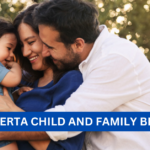The Canada Child Benefit (CCB) is a tax-free monthly payment provided by the Canada Revenue Agency (CRA) to help families with the costs of raising children under 18.
For 2025, eligible Canadian families can receive up to $7,787 per child under six years old and $6,570 per child aged six to 17. This support is designed to ease financial pressure, especially during periods of rising living costs.
In the published article of OPSC Recruitment, Here’s a detailed breakdown of the CCB program, including payment amounts, eligibility criteria, and how to apply.
What Is the Canada Child Benefit?
The Canada Child Benefit is aimed at helping families manage essential expenses like food, clothing, childcare, and education. Introduced in 2016, the CCB has become a lifeline for many Canadian households, especially those with low to moderate incomes. The less a family earns, the higher the benefit they can receive.
How Much Can You Get?
The CCB payment is calculated based on your Adjusted Family Net Income (AFNI), the number of children, and their ages.
Here’s what families can expect for 2025:
- Maximum Annual Benefits:
- $7,787 for each child under six years old.
- $6,570 for each child aged six to 17.
- Additional Child Disability Benefit: Families with children who have disabilities can receive an extra $3,173 per child annually.
- Reduction Rates: Families with an income above $36,502 will see a gradual reduction in their benefit amount:
- For families with one child, the benefit reduces by 7% for every $1,000 of income above the threshold.
- Larger families face slightly increased reduction rates.
Example Calculation:
For a family earning $50,000 annually with two children under six:
- Maximum benefit: $15,574 (for two children at $7,787 each).
- Excess income: $50,000 – $36,502 = $13,498.
- Reduction amount: $13,498 × 7% = $944.86.
- Final annual benefit: $15,574 – $944.86 = $14,629.14.
Eligibility Criteria
To qualify for the Canada Child Benefit, you must meet these requirements:
- Residency:
- You and your child must live in Canada.
- Temporary residents may qualify if they have lived in Canada for at least 18 months with a valid permit.
- Main Caregiver:
- You must be the primary caregiver responsible for the daily care and well-being of the child.
- Tax Filing:
- Both parents (if applicable) must file their annual tax returns.
- Legal Status:
- At least one parent must be a Canadian citizen, permanent resident, protected person, or registered under the Indian Act.
How to Apply
Here’s how to apply for the CCB if you haven’t already:
- Online via CRA My Account:
- Log in or create a CRA account at canada.ca.
- Go to the “Benefits and Credits” section to submit your application.
- Include your Social Insurance Number (SIN) and required documents, such as proof of birth.
- Mail Application:
- Download Form RC66 from the CRA website.
- Fill out the form, attach supporting documents, and mail it to your regional CRA tax center.
- Birth Registration:
- Apply for the CCB when registering your child’s birth, provided your SIN is available.
Payment Schedule for 2025
The CRA issues payments on the 20th of each month. If you opt for direct deposit, the funds are credited faster. For mailed cheques, delivery may take an additional week.
| Month | Payment Date |
|---|---|
| January 2025 | January 20, 2025 |
| February 2025 | February 20, 2025 |
| March 2025 | March 20, 2025 |
Benefits of the Canada Child Benefit
- Eases Financial Stress:
- Helps families cover essential costs like food, clothing, and childcare.
- Promotes Child Development:
- Enables families to invest in education, extracurricular activities, and healthcare.
- Supports Low-Income Families:
- Focuses on households with limited income to improve living standards and create opportunities for children.
Final Thoughts
The Canada Child Benefit for 2025 continues to be a vital source of support for Canadian families. To maximize your benefits:
- Keep your tax returns up to date.
- Apply via the CRA portal for quicker processing.
- Opt for direct deposit to avoid delays.
This program ensures families can better handle their financial challenges while focusing on building a brighter future for their children.
This article has been carefully fact-checked by our editorial team to ensure accuracy and eliminate any misleading information. We are committed to maintaining the highest standards of integrity in our content.
Filza specializes in simplifying financial topics for everyday readers. Whether breaking down Canada’s tax guides or U.S. benefits like SNAP and VA Disability, Filza’s relatable writing style ensures readers feel confident and informed. Follow her insights on LinkedIn or reach out via email at shewrites.health@gmail.com.







